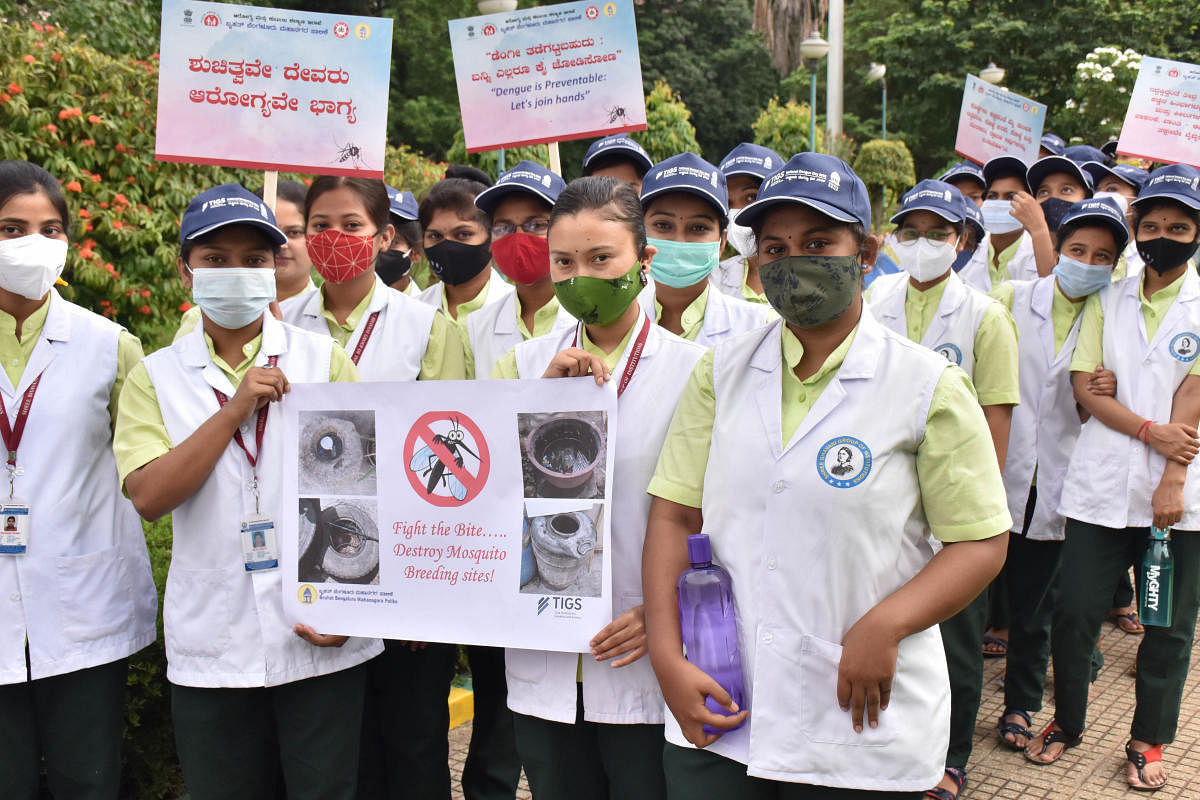
About 1,185 dengue cases have been reported in Karnataka till April 30. So far, the BBMP has recorded 331 cases in the city, of which the East Zone accounts for 123 cases.
Last year, 1,641 cases were reported in the BBMP limits. In 2020, 2,047 cases were reported, while it was 10,411 in 2019. Though seven of the 7,393 who had contracted dengue in the state had died, no deaths have been reported this year.
The East Zone has been topping the list with 4,276 cases in 2019, followed by 664 in 2020, and 592 in 2021.
“There is no specific treatment. We can prevent the disease only by creating awareness and source reduction of the aedes aegypti mosquito,” said State Health Commissioner D Randeep on Monday during a walkathon organised in the city to mark of national Dengue Day.
The first step, he said, was to clear stagnant water in slum pockets. “Those with symptoms like body ache, pain behind the eyes, fever and bleeding have to be admitted to the hospital immediately and given symptomatic treatment.”
BBMP Special Commissioner (Health) Dr K V Trilok Chandra said, “Unseasonal rain and pre-monsoon showers have led to increased stagnation of water. Due to an increase in construction activities, the environment has become conducive for mosquito-breeding.”
Door-to-door survey
“House-to-house larval survey is important. There are 20 lakh houses in the city and we have manpower allocated only for urban slums. We have already proposed to the state government to sanction additional staff,” Dr Chandra said. The National Vector Borne Disease Control Programme has to recalibrate the number of households that are there in the urban pockets, he added.
Reporting from private hospitals has been very poor, he pointed out. This is the case not just for dengue, malaria and chikungunya, but also for other cases of fever, too, he added.
“Local health officers can track cases if reporting is good and address the issue. Under the KPME Act, dengue is a notifiable disease. It is imperative that all cases are notified,” he said.
